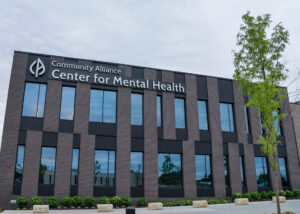Behavioral Health Treatment and Rehabilitation Services
- 80% of participants in outpatient psychiatric treatment and counseling reported improvement or alleviation of impact of mental health symptoms after 6 months of engagement.
- A similar percentage showed a statistically significant reduction in psychological distress and an associated increase in ability to effectively deal with daily activities in response to treatment.
- 92% of all persons served achieved a level of recovery and community tenure that averted the need for psychiatric hospitalization throughout the year.
- 65% of participants served in community support services showed improvement in daily living skills.
- 75% of persons served in residential rehabilitation services were able to transition to a more independent level of care.
- Peer crisis diversion services were provided to 701 guests, with 98% of persons surveyed reporting the service prevented an emergency room visit or hospitalization.
Integrated Physical Health Care
- 49% of persons screened as hypertensive and therefore at greater risk for stroke achieve normal levels of systolic blood pressure after six months of program engagement; 41% saw normal levels for diastolic blood pressuring during the same timeframe.
- 63% of individuals diagnosed as diabetic or pre-diabetic were able to lower their A1C level
- 1,894 individuals across all program levels participated in Community Alliance-provided health and wellness activities including exercise classes, stress reduction, weight management and smoking cessation.
Social Wellbeing and Supports
- 75,555 days of community housing were provided through Community Alliance owned apartments and group residences.
- 8 out of 10 persons without any source of income at time of admission were aided in obtaining financial resources through employment, federal and state assistance programs or other means.
- External evaluators found a statistically significant reduction in “troubled nights”, defined as nights in jail, detoxification, or hospital, after six months program engagement in one or more of Community Alliance’s federally funded grant programs.
Community Education and Outreach
- 1,937 people participated in suicide prevention, education and training over the course of the year.
- 472 students from 14 academic institutions and 10 disciplines were hosted by Community Alliance.
- 47 persons graduated from Community Alliance peer support training classes, preparing them for State certification as Peer Support Specialists..



